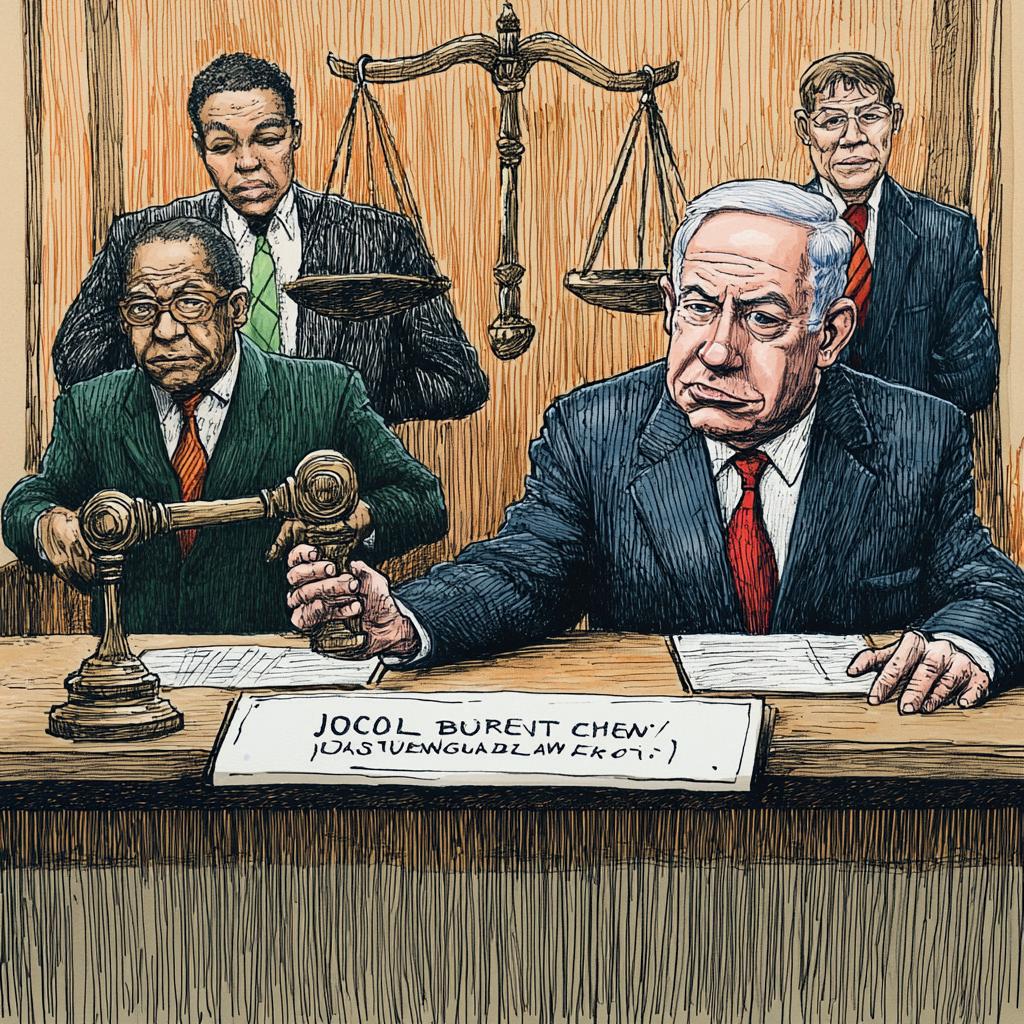
4 minute read
Two courts, One Standard: how Global justice favors the powerful
. Selective Justice: A Design Flaw or a Feature?
Do the World’s Highest
Courts Serve Justice or the West?
The ICC’s docket paints a stark picture. Of the 46 individuals it has charged since 2002, 42 are African - a 91% targeting rate (Wilson Center , (2024) a statistic that fuels accusations of systemic bias. A 2023 study in Academic.oup.com underscores this disparity: "All but one defendant convicted at the ICC has been a Black man." (Lopez, 2023). Meanwhile, Western powers evade scrutiny. The U.S., which has never ratified the Rome Statute, openly threatens sanctions against the ICC for investigating its allies most notably in 2020 when it imposed visa restrictions on prosecutors probing alleged Israeli and U.S. war crimes in Afghanistan.


The ICJ, though theoretically impartial, operates under the same power imbalances. The UN Security Council’s veto system allows permanent members (the U.S., Russia, China, France, and the UK) to block enforcement of rulings against their interests. When Nicaragua sued the U.S. in 1986 for funding Contra rebels, Washington simply ignored the ICJ’s condemnation setting a precedent for Western exceptionalism.
Two courts, One Standard: how Global justice favors the powerful
The ICC’s docket paints a stark picture. Of the 46 individuals it has charged since 2002, 42 are African - a 91% targeting rate (Wilson Center , (2024) a statistic that fuels accusations of systemic bias. A 2023 study in Academic.oup.com underscores this disparity: "All but one defendant convicted at the ICC has been a Black man." (Lopez, 2023). Meanwhile, Western powers evade scrutiny. The U.S., which has never ratified the Rome Statute, openly threatens sanctions against the ICC for investigating its allies most notably in 2020 when it imposed visa restrictions on prosecutors probing alleged Israeli and U.S. war crimes in Afghanistan.
. Selective Justice: A Design Flaw or a Feature?
Courts Serve Justice or the West?
The ICJ, though theoretically impartial, operates under the same power imbalances. The UN Security Council’s veto system allows permanent members (the U.S., Russia, China, France, and the UK) to block enforcement of rulings against their interests. When Nicaragua sued the U.S. in 1986 for funding Contra rebels, Washington simply ignored the ICJ’s condemnation setting a precedent for Western exceptionalism.
Bare In December 2023, South Africa filed a landmark ICJ case accusing Israel of genocide in Gaza, citing mass civilian casualties, forced displacement, and statements by Israeli officials that invoked genocidal intent. The court’s provisional measures in January 2024 ordering Israel to prevent acts of genocide were a rare rebuke, but enforcement remains toothless.
Gavels for the south , shields for the West the ICC & ICj double standard
The U.S. response? Not neutrality, but obstruction.
March 2025 The U.S. sent a letter to UN Secretary-General António Guterres, vowing to shield Israel from accountability mirroring its 2018 withdrawal from the UN Human Rights Council over perceived anti-Israel bias. Lobbying Pressure: A September 2024 report by *Middle East Eye* revealed Israeli diplomats warning South Africa of "heavy prices" for pursuing the case, backed by U.S. Congressional pressure. Military Complicity: The U.S. continues to arm Israel despite ICJ scrutiny, risking legal complicity under the Genocide Convention.
The Asymmetry of International Law
The ICC and ICJ were meant to be neutral arbiters. Instead, they reflect the world’s power imbalances: The ICC pursues African warlords but hesitates to indict Western allies (see: no charges for UK officials over Iraq War torture allegations). -powerful nations ignore them (Russia’s ongoing invasion of Ukraine, despite 2022 ICJ orders to withdraw).
For real change, the UN must dismantle the Security Council’s veto monopoly and demand equitable representation. Until then, these courts will remain tools of **asymmetric justice**: punishment for the weak, impunity for the strong with race and geopolitics as their currency.










